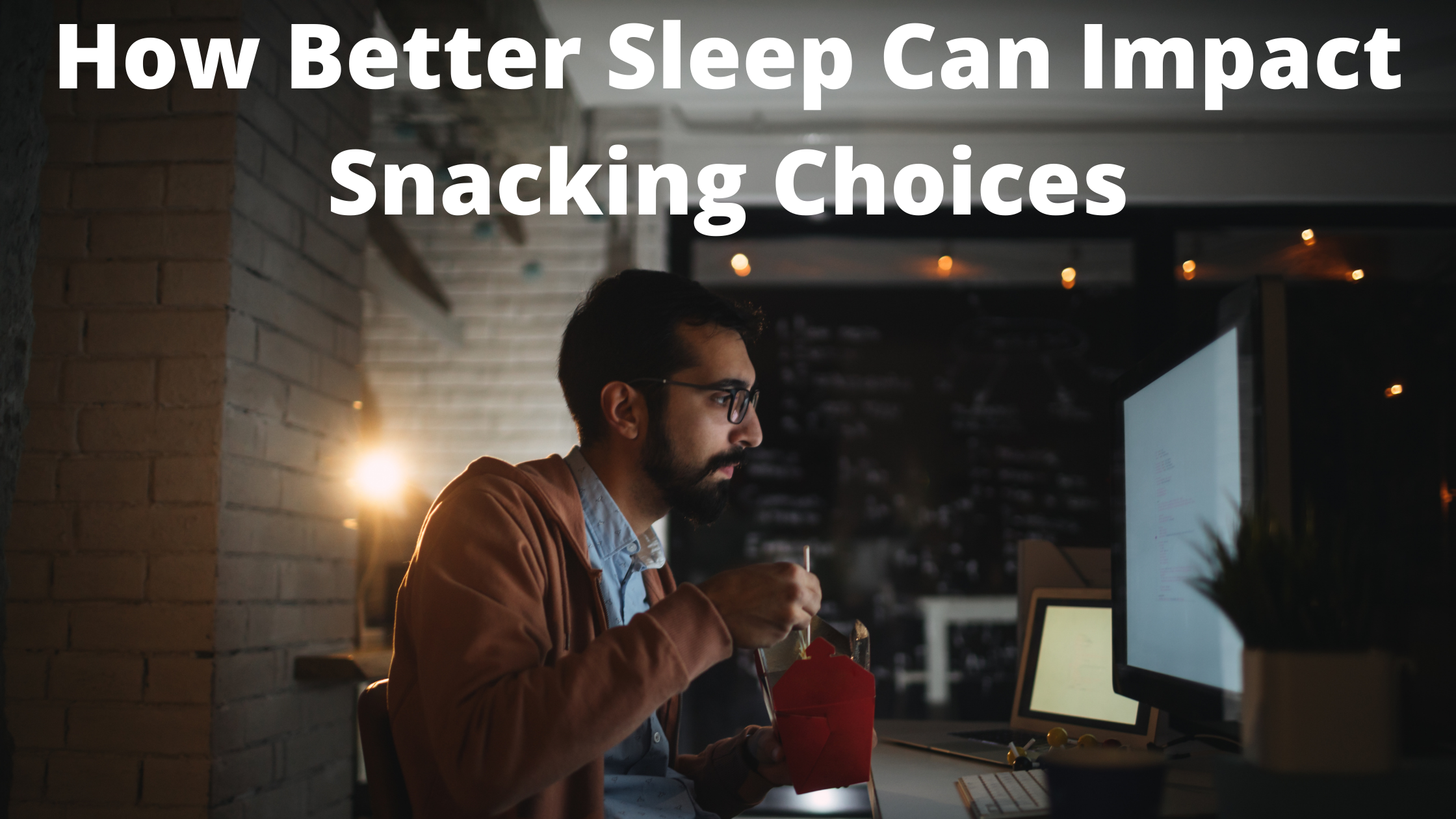
Late-night snacking is a common kryptonite for many individuals who struggle with their weight and insomnia. If you have sleep troubles, then you may find yourself in the kitchen, snacking more than you would like to. However, sleeping better may eliminate some of these late-night cravings, and you may be able to better control some of those late-night cravings.
Sleep habits affecting sleeping habits
A good night's sleep is important for many reasons, including reinforcing your immune response, supporting healthy heart function, and boosting mood, overall health, and productivity. So when sleeping is interrupted, it can have severe consequences on your sleeping habits.
An analysis in the Journal of the Academy of Nutrition and Dietetics looked at between-meal eating behaviors to assess the types of snacking individuals were doing and their sleep habits. They divided groups into those who slept the recommended seven hours and those who did not. They were very interested in after-dinner snacking because that is where a majority of the late-night eating problems occur in conjunction with sleeping issues.
They found that those who did not meet the sleep recommendations consumed more calories from snacks and sugar at night.
When snacking is appropriate
When people eat at 6 pm and then don't go to bed until midnight, they have a large window to just consume empty calories. This is a long time to go without eating, so there is a higher chance that they will engage in mindless snacking. However, for those eating dinner at 8 pm and going to bed at midnight, they should be less hungry. Four hours is a good window as it still provides about 10-12 hours before the next meal, depending on when they wake up.
This isn't always possible, so dieticians recommend only snacking if you're going more than four hours between meals (which is about 2 snacks a day). If you require additional meals, then a third snack in the evening is appropriate, depending on energy needs and bedtime.
The best time to eat is at least two hours before bed to avoid weight gain and sleep disruption. Also, snacks should be balanced, including a variety of nutrients like protein, to help reduce hunger pains. Good snacks include Greek yogurt, cottage cheese, egg, and protein shakes.
Fixes your snacking troubles
Snacking is a hard habit to fight, but it's important to get it under control, as it can lead to diseases like obesity and diabetes. One way to help with these troubles is to stay hydrated. Dehydration can be confused with hunger.
Boredom is also another source of hunger, so it's important to distinguish between true hunger and simply eating to fill time. If you are eating because you're bored, then it may be important to change scenery or switch to a different activity to fill your time.
Also, another key tip for fixing snacking trouble is going to bed earlier. If you're going to bed at midnight, you probably aren't hitting your optimal number of hours of sleep. It also just creates a large window where you're not supposed to eat. If you go to bed earlier, not only can you reduce the number of hours available for you to snack, but you can also increase the number of hours you're sleeping.
If you have trouble sleeping, and this leads you to snacking late at night, then please click the orange button below to take a free online sleep test.
https://www.wellandgood.com/sleep-deprivation-unhealthy-snacking/

